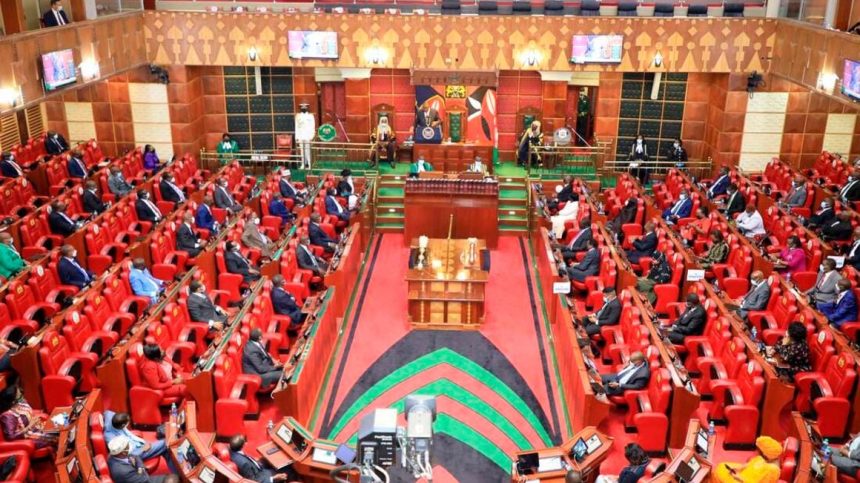MPs have approved the establishment of the first virtual university in Kenya, promising a low-cost alternative to traditional higher education for Kenyan students.
The university, which will ride on the country’s digital infrastructure, is expected to charge between Sh10,400 and Sh10,900 per module, depending on the course.
The National Assembly last week approved the draft charter for the Open University of Kenya (OUK), opening the window for admission of the first cohort of 7,100 distance e-learners.
“Based on the principle of affordability and in comparison with other open distance learning institutions, it is proposed that the fee payable by students for the identified programmes should be between Sh10,400 and Sh10,900 per module,” the Technical Committee on the Establishment of the Open University of Kenya said in a report.
“The cost per module is Sh10,400 for the Bachelor of Data Science, Bachelor of Economics and Statistics, Bachelor of Science in Business and Entrepreneurship, Bachelor of Technology Education and Bachelor of Cyber Security and Digital Forensics.”
The cost per module for the Bachelor of Science in Agricultural Sciences and Technology is expected to be Sh10,900.
“For the two post-diploma courses – Diploma in Learning Design and Technology and Postgraduate Diploma in Leadership and Accountability – offered in the first year, the projected fee per year is Sh130,000,” the team said.
At the Open University of Kenya, which will be based at the Konza Technopolis in Machakos, the total number of modules taken by a full-time student will be between four and six.

President William Ruto appointed the Presidential Working Group on Education Reform on September 30, 2022, to, among other things, recommend a framework for the operationalisation of the National Open University of Kenya and open, distance and e-learning (ODEL).
A technical working committee was established on January 9, 2023, to fast-track the implementation of the proposed university.
Open universities worldwide are established to expand opportunities for in-service training, skills development, capacity building and continuing education.
The committee says in its report that the university will break down barriers to access for hard-to-reach groups through flexible admissions criteria and systematic recognition of prior learning.
The report, which was approved by the House before MPs went on a two-week recess, shows that taxpayers will spend Sh1.86 billion in the first year of OUK’s operation to run the virtual university.
“A budget of Sh1,855,664,819 has been proposed for the first year of operation of the OUK to meet most of the initial costs of setting up physical facilities, information communication technology and support, design, production, acquisition of learning/teaching materials and learner support services,” the Presidential Working Group report said.
The committee said total staff salaries for the proposed Open University would account for only 30 percent of the total budget, compared to 80 percent in Kenya’s public universities.
Most of the staff will be employed on contract, piece-work or part-time basis.
“If this budget were to be funded entirely from student fees, each of the 7,100 students proposed for the first intake would have to pay Sh156,582 for that financial year, assuming that the development costs are amortised over a five-year period,” the presidential task force said in its report.
“The proposed fees for postgraduate diploma courses are Sh130,000 per annum. The committee makes it clear that any increase in the number of students will not necessarily require a corresponding increase in core staff and fixed costs so that economies of scale will be achieved after a few years when a significant number of students are enrolled,” the report said.
The government is expected to provide the recurrent and development grants of the total budget in the first year of operation.
“The committee is convinced that the investment in the Open University for Kenya is sound and timely,” the committee said.
The committee has since submitted to the Ministry of Education a blueprint for the establishment of the OUK, a proposal for the Open University of Kenya, the Open University of Kenya Bill 2011 and a draft charter.



